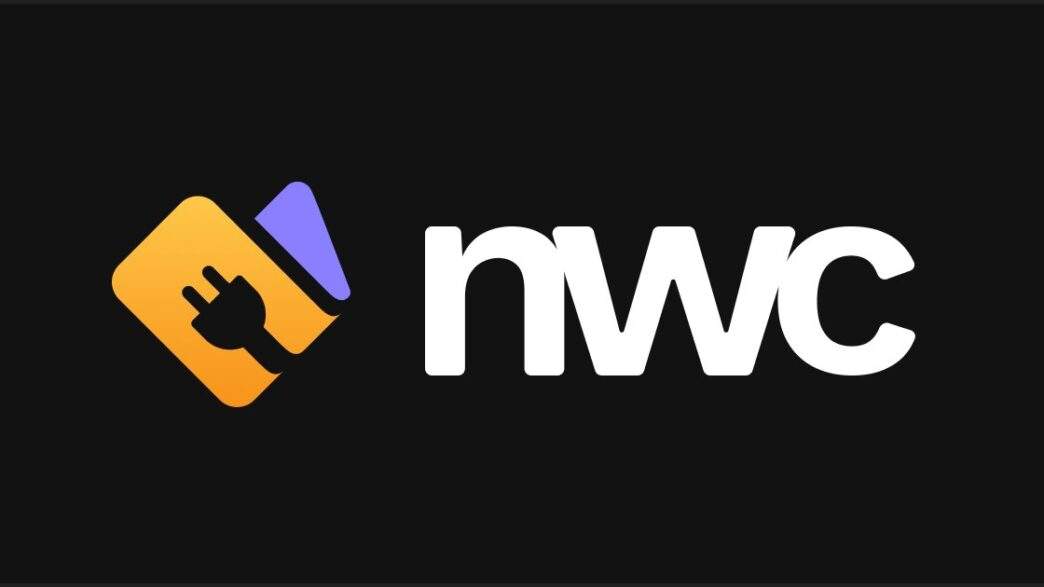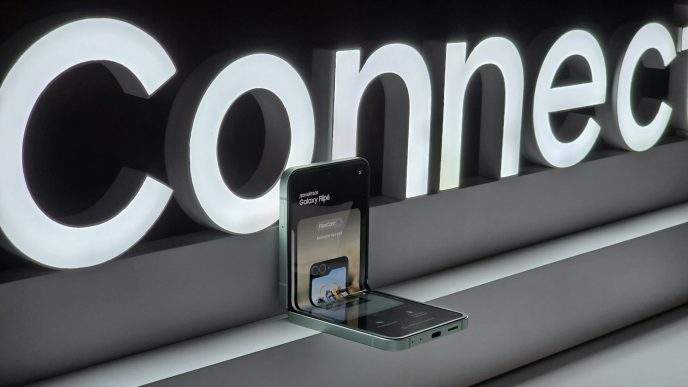The Bitcoin Lightning Network has solved the scalability problem, but a new challenge emerged: how can applications integrate payments without becoming regulated financial intermediaries?
Nostr Wallet Connect (NWC) provides an elegant solution that enables sophisticated payment features while remaining outside the scope of traditional financial regulations.
What is Nostr Wallet Connect?
Nostr Wallet Connect is an open protocol that allows Lightning wallets to connect to any application through a standardized interface. Unlike traditional payment integrations, NWC operates as a pure communication layer, enabling sustained interaction between Bitcoin Lightning wallets and applications via Nostr relays.
The protocol uses end-to-end encrypted direct messages over Nostr relays to facilitate communication between a client application and a wallet service. When a user wishes to make a payment, their application sends an encrypted payment request through Nostr relays to their connected wallet, which then authorizes or rejects the transaction directly.
The Features NWC Enables
Universal Wallet Integration
NWC breaks down the walled gardens that previously fragmented the Lightning experience. Users can now connect their preferred wallet to any NWC-compatible application, eliminating the need for separate accounts and balances across different services. One wallet becomes the payment engine for unlimited apps.
Recurring Payments and Subscriptions
Perhaps most significantly, NWC enables automated recurring payments without requiring the service provider to hold funds or act as a payment intermediary. Applications can request periodic payments that users’ wallets execute automatically based on predefined authorization rules.
Seamless In-App Payments
Users can tip creators, purchase digital goods, or donate directly within any interface without leaving the application or managing multiple wallet contexts. The payment experience becomes as frictionless as Web2 while maintaining Bitcoin’s permissionless nature.
Payment Gateway Infrastructure
Merchants and service providers can build sophisticated payment gateways that route payment requests to users’ self-custodial wallets without ever touching the funds themselves. The application facilitates the transaction without intermediating it.
The Regulatory Arbitrage
The most revolutionary aspect of NWC isn’t technical—it’s regulatory. By architecting payments as a communication protocol rather than a custody or intermediation service, NWC enables payment features that would traditionally require extensive licensing and compliance infrastructure.
Why Traditional Payment Systems Require Licenses
In both the European Union under MiCA (Markets in Crypto-Assets Regulation) and the United States under money transmission laws, entities that provide certain payment services must obtain licenses, maintain substantial capital reserves, and comply with extensive KYC/AML requirements.
MiCA directly regulates custodial wallet providers (CASPs) who provide custody and administration of crypto-assets on behalf of third parties. In the US, money transmitters must register with FinCEN and acquire licenses in every state, typically requiring around $8 million in surety bonds and $100,000 in application fees.
The regulatory trigger is clear: if you receive, hold, or transmit funds on behalf of others, you’re operating a regulated financial service.
How NWC Sidesteps These Requirements
NWC’s architecture fundamentally avoids the activities that trigger regulatory classification:
No Custody: At no point does the NWC protocol, or any application using it, gain control over funds or private keys. The protocol operates with zero-custody architecture where no user funds are held by the app.
No Intermediation: Applications don’t receive funds and then distribute them. Instead, they send encrypted payment requests that users’ wallets execute directly. The funds flow peer-to-peer via the Lightning Network, never touching the application’s infrastructure.
User-Controlled Authorization: Payment authorization happens wallet-side, not app-side. Users maintain complete control through their self-custodial wallets, whether running on their own nodes or using trusted wallet providers.
Pure Communication Layer: NWC functions as communication infrastructure, similar to how email protocols facilitate message delivery without reading or storing contents. The protocol transmits payment requests and responses, nothing more.
The Regulatory Exemptions
MiCA notably excludes from its scope undertakings that provide crypto-asset services in a fully decentralized manner without any intermediary. Unhosted (self-custodial) wallets are not directly regulated under MiCA currently.
Similarly, US money transmission laws define the regulated activity as “receiving funds for the purpose of transmitting them to another place or person.” If you never receive the funds—if they flow directly from payer to payee via Lightning channels—you’re not transmitting money in the legal sense.
This creates a clear distinction:
- Traditional payment processor: Receives funds → holds them → distributes them = Licensed activity
- NWC-enabled service: Sends payment request → user’s wallet pays directly → service never touches funds = Communication service, not payment service
Real-World Applications
The NWC ecosystem has grown to encompass over 80 integrated services across multiple categories:
Content Monetization: Social media platforms can enable direct creator payments without becoming money transmitters. Users tip content creators through their connected wallets while the platform simply facilitates the request.
Subscription Services: Applications can offer recurring subscription models where users authorize their wallets to automatically process periodic payments. The service never holds subscription funds or requires payment processing licenses.
Gaming and Digital Goods: Games can sell in-game items and currencies with instant settlement, without maintaining payment processor relationships or handling fiat currency conversions.
Donation Platforms: Charitable organizations and fundraising platforms can accept Bitcoin donations routed directly to their wallets, with the platform providing discovery and communication infrastructure rather than payment services.
The Technology Advantage
Beyond regulatory benefits, NWC offers technical advantages that traditional payment integrations struggle to match:
Interoperability: Developers build once to the NWC standard and gain compatibility with dozens of wallet implementations, from fully custodial options like Wallet of Satoshi to self-hosted nodes running on Umbrel or Start9.
Speed: Lightning Network payments settle in seconds, not days. Combined with NWC’s streamlined communication, the payment experience rivals centralized payment processors without their infrastructure overhead.
Privacy: End-to-end encryption ensures payment requests and responses remain private. Neither Nostr relays nor any intermediary can read the payment details.
Resilience: The decentralized nature of both Nostr and Lightning Network means no single point of failure. Applications remain functional even if individual relays go offline.
Developer Perspective
For developers, NWC represents a paradigm shift in payment integration complexity. Traditional payment processor integration requires:
- Lengthy approval processes and due diligence
- Complex compliance and reporting infrastructure
- Maintenance of PCI-DSS standards for card payments
- Multi-jurisdictional licensing for international operations
- Substantial capital reserves and insurance requirements
NWC integration requires:
- Implementing the open protocol specification
- Connecting to Nostr relays
- Handling encrypted message exchange
The reduction in friction is dramatic. A developer can implement sophisticated payment features in days rather than months, without legal consultations about licensing requirements or compliance obligations.
Important Caveats
While NWC’s current regulatory positioning appears favorable, several important caveats apply:
Evolving Regulatory Landscape: Financial regulators worldwide are actively studying cryptocurrency payment systems. Future regulations may attempt to capture facilitation services even without custody or intermediation.
Wallet Provider Regulations: While the protocol itself may be unregulated, wallet providers using NWC may still face regulations depending on whether they offer custodial or self-custodial services.
Jurisdictional Variations: Regulatory treatment may vary significantly by jurisdiction. What’s unregulated in one country may be restricted in another.
Use Case Matters: Certain use cases may trigger additional regulations regardless of the underlying technology. For example, securities offerings or gambling services face regulations beyond payment processing.
Not Legal Advice: This analysis represents technical and regulatory architecture assessment, not legal advice. Developers should consult legal counsel familiar with their specific jurisdiction and use case.
The Bigger Picture
Nostr Wallet Connect represents more than a clever technical protocol—it demonstrates how open, decentralized architectures can provide sophisticated financial services while remaining outside traditional regulatory frameworks designed for centralized intermediaries.
The protocol proves that recurring payments, subscriptions, payment gateways, and seamless in-app purchases don’t inherently require custody, intermediation, or the regulatory burden that comes with them. By returning control to users and their self-custodial wallets, NWC enables the functionality of modern payment systems with the sovereignty of Bitcoin.
As the ecosystem continues to grow—currently encompassing over 80 services including wallets, social media platforms, payment tools, games, and developer infrastructure—NWC is establishing a new paradigm for how payment features can be built in a Bitcoin-native way.
The traditional financial system required licenses and regulations because centralized intermediaries created risks: they could lose funds, block transactions, or abuse their position. NWC eliminates the intermediary entirely, obviating the need for protective regulations while delivering superior functionality.
For Bitcoin’s vision of permissionless, peer-to-peer electronic cash to fully materialize, protocols like NWC are essential. They prove that we can have sophisticated payment features without sacrificing sovereignty to regulated intermediaries.
The payment revolution isn’t coming. It’s here. And it’s unfolding outside the traditional regulatory perimeter entirely.
















